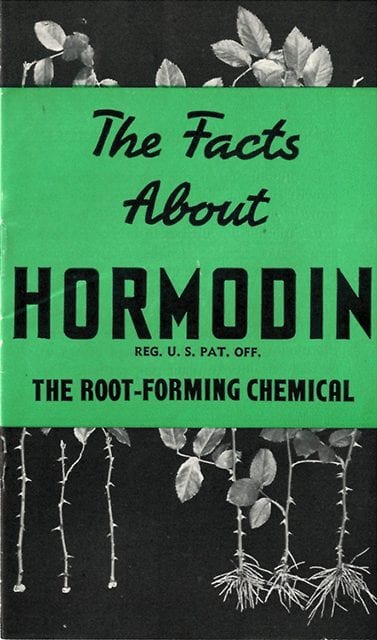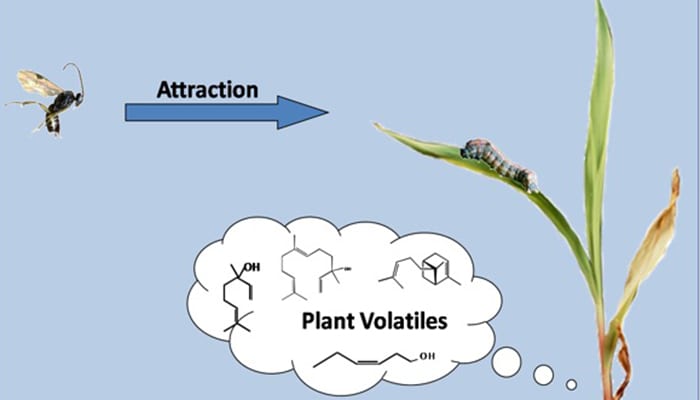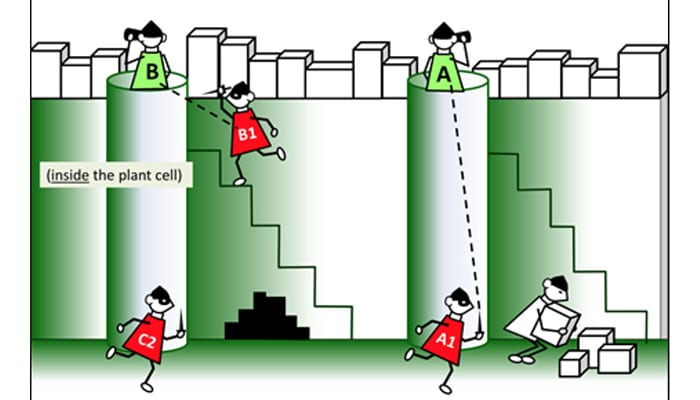Citrus-growing regions face different pressures
Citrus growers are uniting to save their groves from citrus greening disease and to fund research into solutions, but growers in California face different challenges than those in Florida, report BTI and USDA researchers.
‘New Visions’ of food security from Cassandra Proctor
“Food security is a mixture of all the different aspects of agriculture. It’s not just growing the food," said Proctor. “It’s not just planting something in the ground – there is a lot more to it.”
Going Back to BTI’s Roots: A History of Hormodin
Rooting powders, commonly used by growers and home gardeners, had their beginnings in the labs of BTI in the 1930s.
Researchers Identify Genes for “Help Me!” Aromas from Corn
Insect damage triggers volatile compounds that attract caterpillar-killing wasps.
A New Method for Studying Plant-Germ Warfare
Researchers in the Martin lab develop a new technique to study the arms race between plants and the bacteria that infect them.
New Ventures: Jacqueline Heard Joins BTI Boards
Drawing on her background in plant pathology and biotechnology, Heard advises agricultural startups, with the goal of launching companies that will bring new innovations to agriculture.
BTI Says Goodbye to Klaus Apel
Professor Klaus Apel can pinpoint the exact time he chose to be a plant scientist. As a young person, Apel was seriously interested in birding and so he entered the University of Hamburg to study biology, with a special emphasis on zoology. But in a year-long,...
2016 BTI Science Symposium: The Future of Plants in a Changing Environment
The recent Symposium explored plant science topics including molecular biology, atmospheric sciences, plant breeding and soil and crop sciences.
Frank Schroeder Selected for HHMI Faculty Scholars Program
The five-year grant is given to innovative, early career scientists to support high-risk research with the potential to make significant contributions to the field.
Citrus Greening Pathogen Has Gut-Wrenching Effect on Insect Vector
A new paper from the Cilia lab reports that the Asian citrus psyllid mounts an immune response against the bacterium that causes citrus greening disease - a discovery that may be useful for developing a treatment against the devastating epidemic.










